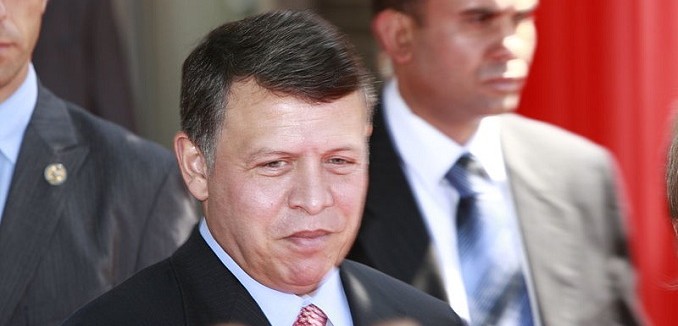King Abdullah II of the Hashemite Kingdom of Jordan has reappointed incumbent prime minister Abdullah Ensour and asked him to form a new government, the sixth time since the Arab Spring began two years ago that Abdullah has appointed or reappointed a prime minister. Ensour – who has also played technocratic roles in previous Jordanian governments and is a U.S.- and French-educated economist – will hold consultations with parliamentary factions ahead of forming his new cabinet.
What the Wall Street Journal calls Jordan’s “churn rate” is driven partly by economic dissatisfaction…
Jordan has seen its government budget deficit explode, inflation rates rise steadily, tourism plummet and its biggest export route closed off. Youth unemployment is running above 25% and the economy is shrinking as the government cuts back on spending and subsidies. “Poverty is deepening. It’s very tough already for many people,” said Imad Hmoud, a private economist and commentator. “The government doesn’t have the money.”
… partly by political instability driven by the Syrian conflict…
Jordan is being flooded with as many as 400,000 refugees from Syria… the refugees still put a tremendous financial burden on Jordan, which estimates it will spend $500 million this year on the problem. There are also steep indirect costs: Each time a refugee uses water, purchases bread or buys cooking fuel, the Jordanian government picks up part of the tab, since all those commodities are subsidized by the government… Jordan expects to receive at least 260,000 more refugees this year, far more if the regime to the north collapses.
… and partly by the Jordanian Muslim Brotherhood, which boycotted the last election in order to undermine the poll’s legitimacy and is now playing a double-game of boosting anti-monarchy protests without calling for the King’s overthrow. The organization is biding its time:
The Muslim Brotherhood, a group that traditionally has been treated well by the king, has also begun to take part in the escalating protest movement. However, unlike the Palestinians, the Muslim Brotherhood is not calling for the king to be toppled but rather for the regime to be reformed. Although they clearly understand that the king is slowly losing his grip on power, tactically it’s in their interest to gradually gain control via reforms.
Even the decision to openly criticize the Hashemite King, however, marks an escalation. Domestic protests in Jordan have almost always been confined to criticism of whatever government the monarch had installed, and almost never of the King himself.
In addition to the economic and political implications of the Arab Spring and the Syrian conflict, Jordan also finds itself directly threatened by a potential violent spillover. Last month Jordanian border guards closed a crossing used by Syria refugees after a woman was caught trying to cross into the country wearing an explosive vest. She’s suspected of being affiliated with Syrian groups seeking to target Jordanian institutions.
[Photo: MEDEF / Wiki Commons]




